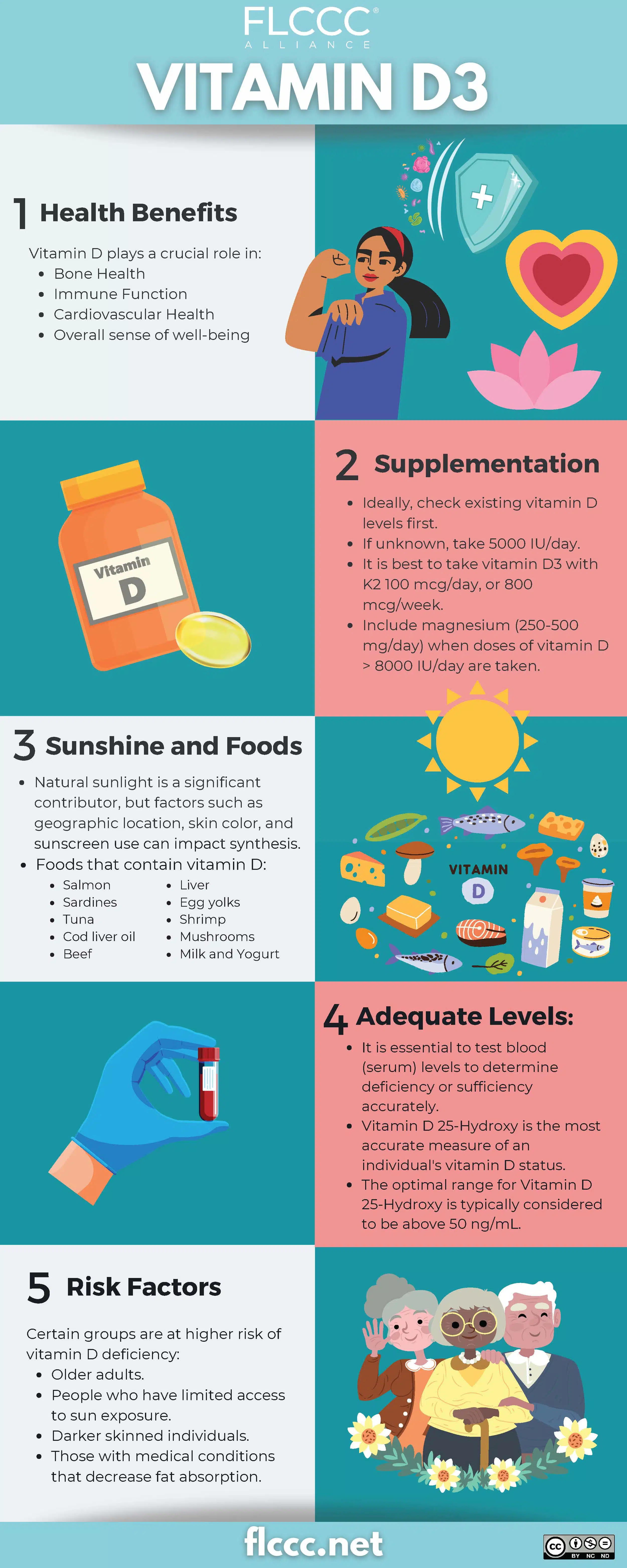
1. Health Benefits
Vitamin D plays a crucial role in:
- Bone Health
- Immune Function
- Cardiovascular Health
- Overall sense of well-being
2. Supplementation
Ideally, check existing vitamin D levels first.
- If unknown, take 5000 IU/day.
- It is best to take vitamin D3 with K2 100 mcg/day, or 800 mcg/week.
- Include magnesium (250-500 mg/day) when doses of vitamin D > 8000 IU/day are
3. Sunshine and Foods
Natural sunlight is a significant contributor, but factors such as geographic location, skin color, and sunscreen use can impact synthesis.
Foods that contain Vitamin D:
- Salmon
- Sardines
- Tuna
- Cod
- Liver oil
- Beef
- Liver
- Egg yolks
- Shrimp
- Mushrooms
- Milk & Yogurt
4. Adequate Levels:
It is essential to test blood (serum) levels to determine deficiency or sufficiency accurately.
- Vitamin D 25-Hydroxy is the most accurate measure of an individual’s vitamin D status
- The optimal range for Vitamin D 25-Hydroxy is typically considered to be above 50 ng/mL
5. Risk Factors
Certain groups are at higher risk of vitamin D deficiency:
- Older adults
- People who have limited access to sun exposure
- Darker skinned individuals
- Those with medical conditions that decrease fat absorption


